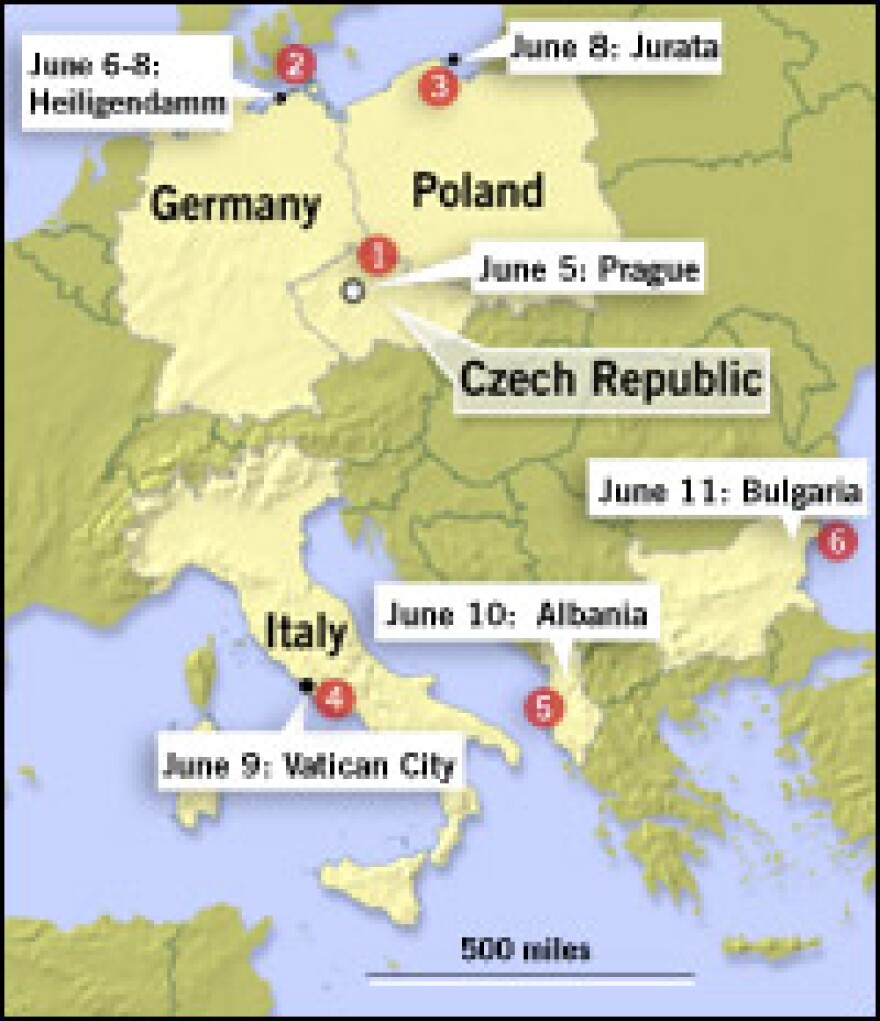
Climate change, the Middle East peace process, health and poverty in Africa and global trade are among the issues likely to be the center of debate and discussion at the 33rd annual G-8 conference.
This year's Group of Eight Summit — bringing together the leaders of Germany, Britain, Canada, France, Italy, Japan, Russia and the United States — runs June 6-8 in Heiligendamm, Germany.
Germany holds the G-8 presidency for 2007, so its government and Chancellor Angela Merkel define the issues on the table at the meeting.
The United States first launched what is now known as the G-8 in 1974 in an effort to better strategize about the global economy and political issues. It was initially called the "Library Group" and included top officials from the United Kingdom, Germany and Japan. As representatives from other countries were quickly added, it became the G-6 and, then, the G-7. It was not until 1998, when Russia was officially welcomed, that the consortium became known as the G-8.
The eight countries involved together account two-thirds of the world's economic output, according to the U.S. State Department. Because it has the smallest economy, Russia does not participate in financial discussions.
While the agenda for this year's meeting has not been finalized, the following topics likely will be areas of focus for the Group of Eight, which aims to improve the reliability of the global economy and assist less-advantaged parts of the world:
Other issues that could reach the table include social developments related to globalization, proliferation of nuclear and chemical weapons, ongoing battles in Iraq, Afghanistan and other regions, and global terrorism.
Copyright 2020 NPR. To see more, visit https://www.npr.org.

